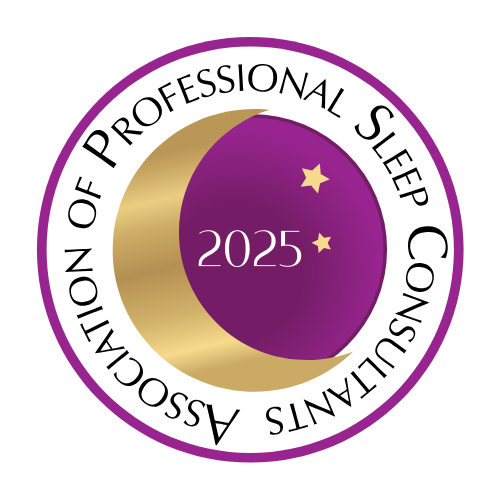Why Is Sleep Important?
Author Name: Heidi Holvoet, PhD
Why is sleep
important?
Because it makes you
happy
,
healthy
and
smart.
That's how I answered my son's question the other day.
And it's true,
the
benefits
are basic and felt in our everyday lives, from
newborn through adulthood.
Why is sleep important for your baby?
 photo
courtesy of
a4gpa
photo
courtesy of
a4gpa
It's no secret how important sleep is for babies.
As a parent you know how
happy
and sweet
a baby can be after a good rest - and how
cranky and fussy when tired. And how an overtired baby won't sleep easily, won't fall asleep well nor stay asleep for longer stretches.
And if your baby is well rested, you benefit too: you get more rest, which
makes you feel better
and keeps you healthy. And that in turn has an important positive
effect on your child(ren).
But there are even
more
fundamental benefits
:
- Hard work is done in a newborn's brain, and proper brain development requires enough and good quality sleep.
- When sleeping, a baby dreams most of the time. Researchers found that dreaming stimulates baby's brain and so assists in its healthy development.
- The first half year is crucial for developing good sleeping skills. It's in these early months that baby's sleep patterns mature most quickly and the stage is set for the years to come.
- Poor sleep in infancy has been linked to obesity, as a child and as an adult. [1]
- Good sleep as a child also decreases the chance for general health problems and emotional difficulties like depression and anxiety.
- An overtired baby won't sleep well. A baby who is mostly well-rested and just readily tired by bedtime, will settle much easier and have better nights as well.
If your baby is not sleeping well ...
Does that mean your child is doomed to be unhealthy and unhappy? No, of
course not. What we as parents call
"not
sleeping well" is often just fine for an infant
.
She may not be taking any naps at all or may not be sleeping through
the night at 6 or at 18 months. But that can still be just fine
for her and give her enough good quality rest.
What is important is that we give her
the
right support
to
go through that all important development in the
first half year.
How? By
guiding in a
loving and determined way
.
Loving means with enough
attention for her needs and natural
patterns.
And
without forcing her unnaturally
(like overfeeding or certain medical sleep aids).
Determined
means you don't necessarily give her all the freedom: you choose where
and how she sleeps, when you put her to bed, when is play time and when
is quiet time.
That gives your baby the
safe
and consistent environment
to develop her sleeping at best.
The common problems and potential medical reasons baby won't sleep and sleeping through the night pages offer ideas and tools to get started.
If YOU are tired
Besides being tired and sleepy, the first
effect of
sleep deprivation
is nearly always emotional: we feel
down
, low
on energy and without much confidence in what we do.
It's good to realize this and to think about it when you feel depressed
after many broken nights with your baby. It's
only
the lack of sufficient rest
doing this -
it's
not you
not being strong enough or not trying hard enough.
Help yourself
by catching up on rest as much as you can. A quick nap, an early night
or even an hour or so between the last day and first night feed can
work wonders. You may find a couple of simple
relaxation techniques
helpful too.
Also,
do not hesitate to ask your partner, family or friends to help you from
time to time, for example with babysitting while you nap. If you would
like support you can also
contact me, I'm here to help.
The answer to the
Why
Is Sleep Important?
question is in all of the above.
The best tip I can give is to keep the importance in
the back of your mind, but do not over-emphasize. Simple as it may seem, keeping
a relaxed attitude
will help both you and your little one get more rest.
Article Author: Heidi Holvoet, PhD - Founder, senior sleep consultant

Heidi Holvoet, PhD, is the founder of the Baby Sleep Advice website and movement, an award-winning author, baby & toddler sleep consultant with 17+ years experience as well as a certified lactation counselor.
Over the years, Heidi has received several awards inluding a Mom's Choice Award (MCA) and National Parenting Awards (NAPPA) for her Baby Sleep Advice website, programs and books. Also, Baby Sleep Advice was awarded "Most Trusted Infant's Sleep Solutions Company 2023" in the Benelux Enterprise Awards 2023.
Heidi continually conducts personal research and participates in continued education and in that way stays up to date with current scientific and pyschosocial infant care.

She is also a member of the Association of Professional Sleep Consultants of which she was one of the earliest contributors. She obtained her PhD degree in physics at the University of Ghent in Belgium.
Heidi is passionate about helping babies and their parents sleep more and better, with her trademark holistic and truly-no-tears approach that has been proven and praised time and again by parents worldwide to be effective and truly no-tears. Respect for you as a parent and your baby, is at the heart of Heidi's warm and kind support. Her approach always keeps in mind a baby's needs and abilities at any given age, is based on pediatric science and the most up to date knowledge in infant care and sleep science.
As well as the award-winning baby sleep programs, Heidi offers popular 1:1 consults and easy-access 30-minute SOS Sleep sessions.
Resources
[1] Sleep and physical growth in infants during the first 6 months Tikotzky L, De Marcas G, Har-Toov J. et al. - Journal of Sleep Research , 2009. doi: 10.1111/j.1365-2869.2009.00772.x.

Baby waking every hour?
by Heidi Holvoet, PhD

Sleep schedules by age
by Heidi Holvoet, PhD

Separation Anxiety
by Heidi Holvoet, PhD

Crib safety guidelines
by Heidi Holvoet, PhD

Why does my baby wake up every hour?
by Heidi Holvoet, PhD


